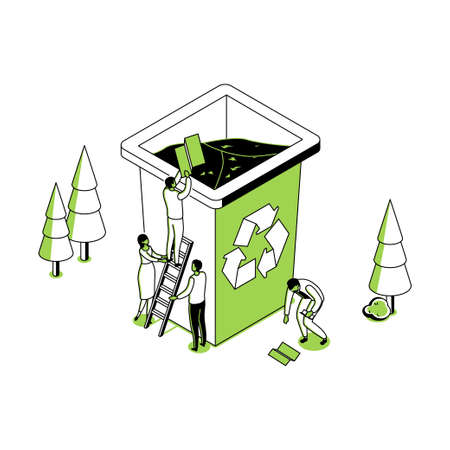Introduction to Sustainable Camping
Camping in the UK is a cherished tradition for many families, offering the chance to connect with nature and one another. As more of us seek adventure in the great British outdoors, it’s essential to consider how our choices impact the beautiful landscapes we love. Sustainable camping practices are about making thoughtful decisions that help protect local wildlife, reduce waste, and preserve natural spaces for future generations. With unique environments such as the Lake District, Scottish Highlands, and Pembrokeshire Coast, the UK has a responsibility to care for these special places. By choosing eco-friendly camping gear and adopting greener habits, we can minimise our environmental footprint and ensure that Britain’s wild spaces remain unspoilt havens for family adventures and peaceful escapes.
Key Features of Eco-Friendly Camping Gear
Choosing sustainable camping gear is about more than just ticking a green box—it’s about making practical, planet-friendly decisions that keep the British countryside beautiful for generations to come. When you’re shopping for eco-friendly camping equipment here in the UK, it helps to know what to look out for. Below are some of the key materials and design elements that set sustainable gear apart:
Eco-Conscious Materials
Look for products made from recycled or upcycled materials, such as tents crafted from recycled polyester or sleeping bags filled with post-consumer down. Organic cotton, hemp, and bamboo fibres are also popular choices for items like clothing and reusable bags. These materials reduce reliance on virgin resources and help cut down on landfill waste.
Biodegradable Products
One way to lessen your impact is by choosing biodegradable options wherever possible. From compostable cutlery to plant-based washing-up liquids, these products break down naturally after use—perfect for wild camping or eco-conscious family trips to places like the Lake District or Peak District.
Minimal Plastic Usage: A Comparison Table
| Traditional Gear | Eco-Friendly Alternative |
|---|---|
| Plastic water bottles | Stainless steel or glass bottles |
| Nylon tents with PVC coatings | Tents made from recycled PET or organic cotton canvas |
| Synthetic foam mats | Mats from natural latex or recycled foam |
By prioritising these features, you not only reduce your environmental footprint but also encourage innovation within the outdoor industry. It’s a fantastic way to start conversations with your children about why we care for our local landscapes—from the Scottish Highlands to Cornwall’s beaches—while setting a positive example through every kit choice.

3. Top UK Brands for Green Equipment
When it comes to making sustainable camping choices in the UK, it’s heartening to know that several home-grown brands and organisations are leading the way with eco-friendly gear. Choosing products from reputable British companies not only reduces your carbon footprint by limiting overseas shipping but also supports local businesses with a strong commitment to the environment.
Tried and Trusted UK Brands
One of the standout names is Vango, a Scottish company renowned for its dedication to sustainability. Vango offers tents and sleeping bags crafted from recycled materials, and their Earth Collection specifically focuses on minimising environmental impact. Another favourite is Rab, based in Derbyshire, who have made significant strides in responsible sourcing, offering insulated jackets and sleeping bags using recycled down and fabric while ensuring ethical manufacturing processes.
Innovative Organisations Making a Difference
For families keen on reducing waste, TentShare provides an excellent solution by allowing campers to rent tents rather than purchase new ones, promoting a culture of reuse across the UK. Similarly, The North Face Renewed offers refurbished outdoor gear, helping to extend product lifecycles and keep equipment out of landfill.
Green Accessories and Essentials
If you’re looking for planet-friendly cooking solutions, BioLite, although international, works closely with UK distributors to provide clean-burning stoves and solar-powered gadgets perfect for British campsites. For daily essentials like cutlery and water bottles, brands such as Bamboo Home Store and Klean Kanteen offer durable, reusable alternatives that fit perfectly into any eco-conscious camping kit.
Embracing Local Values
By choosing gear from these trusted UK-based brands and organisations, you’re not just preparing for a comfortable adventure—you’re also teaching children about responsibility and care for our beautiful countryside. With every sustainable purchase, your family helps set a positive example for future explorers while protecting the natural spaces we all love.
4. Making Conscious Choices: Tents and Sleeping Gear
When camping in the UK, making sustainable choices for your shelter and sleeping arrangements is essential—not only for the environment but also for your family’s comfort. The British weather can be unpredictable, and our picturesque countryside deserves gentle stewardship. Here’s how you can choose eco-friendly tents, sleeping bags, and mats that align with both local conditions and your values.
Eco-Friendly Tents: Built to Last & Gentle on Nature
Look for tents made from recycled or organic materials, such as recycled polyester or canvas treated with natural, non-toxic waterproofing. Many UK-based brands now offer tents designed for longevity, repairability, and minimal environmental impact. Consider features like robust double stitching and replaceable poles so your tent lasts many family holidays—helping you create memories while treading lightly.
Tent Material Comparison Table
| Material | Eco Credentials | Best For | Typical UK Use |
|---|---|---|---|
| Recycled Polyester | Made from post-consumer plastics; reduces landfill waste | Lightweight camping; quick drying | Short trips, variable weather |
| Organic Cotton Canvas | Biodegradable; untreated options available | Family/group camping; breathability | Longer stays; traditional campsites |
| Bamboo Fibre Blends | Sustainable crop; low water usage | Eco-luxury glamping experiences | Warm summer nights; festival camping |
Sustainable Sleeping Bags: Snuggle up Responsibly
The right sleeping bag keeps everyone cosy through drizzle or chilly nights. Look for insulation made from recycled synthetic fibres or responsibly-sourced down certified by the Responsible Down Standard (RDS). Consider UK-specific designs that provide extra warmth for damp conditions or those with modular layers that adapt as the seasons change.
Caring Tip:
Extend the life of your sleeping bag by airing it out after each trip and storing it loosely at home. This simple routine keeps it fresh for your next adventure—and reduces unnecessary waste.
Mats & Pads: Comfort with a Clear Conscience
A good night’s sleep is priceless after a day exploring the Lake District or Cornish coast. Choose sleeping mats made from sustainably-sourced foam or those using recycled components. Some British brands even offer take-back schemes to recycle old mats into new products, closing the loop and keeping plastics out of landfills.
Sustainable Sleeping Mat Options Table
| Type | Main Eco Feature | Comfort Level | Recommended UK Use |
|---|---|---|---|
| Sustainably-Sourced Foam Mats | Natural rubber or recycled foam content | Moderate to high (insulates from cold ground) | All-year round, especially colder months |
| Inflatable Mats with Recycled Fillings | Recycled polyester fill; lightweight design | High (cushioning for uneven terrain) | Backpacking across varied landscapes |
| Cork Mats/Blends | Biodgradable cork blend; naturally anti-microbial | Softer surface; warmer feel | Milder climates, spring to autumn trips |
Selecting these thoughtful options means every UK camping trip becomes an opportunity not just for family connection, but also to nurture our beautiful wild spaces—ensuring they’re here for generations of little adventurers to come.
5. Eco-Friendly Cooking and Eating Equipment
When planning a sustainable camping trip in the UK, its important to consider not only what you eat but also how you prepare and enjoy your meals. Opting for eco-friendly cooking and eating equipment is a simple yet impactful way to reduce waste, lower your carbon footprint, and keep the British countryside pristine for future generations.
Reusable Cookware: The Smart Choice
Stainless steel and anodised aluminium pots and pans are highly recommended among UK campers. These materials are durable, lightweight, and easy to clean, making them perfect for family adventures or solo getaways. Brands like Trangia and Outwell offer reliable options that withstand the rigours of outdoor cooking without releasing harmful chemicals.
Lightweight Cutlery for Every Camper
Say goodbye to single-use plastic forks and spoons! Instead, choose reusable cutlery made from bamboo, stainless steel, or even recycled materials. Compact utensil sets from companies such as Light My Fire or Wildo fit easily into your backpack and can be used meal after meal. For younger campers, colourful silicone or BPA-free plastic sets add an element of fun while remaining safe and sustainable.
Non-Toxic Food Storage Solutions
Keeping your food fresh on UK campsites doesn’t have to mean relying on cling film or disposable bags. Beeswax wraps, silicone pouches, and glass containers are all popular alternatives that minimise waste. Look out for locally-made beeswax wraps at farmer’s markets or eco-shops across Britain—they’re reusable, washable, and biodegradable.
Clever Tips for Families
Turn mealtime into a bonding experience by letting children pick out their own sustainable lunchboxes or water bottles decorated with favourite British wildlife. Encourage little ones to help wash up with plant-based soaps and cloths instead of paper towels. These small steps foster responsibility while making green choices part of everyday life.
Supporting Local Businesses
Many British brands now specialise in eco-conscious camping gear—so choosing homegrown products supports local communities as well as the environment. Whether you’re heading to the Lake District or exploring the Cornish coast, packing sustainable cookware ensures that your outdoor adventures are tasty, tidy, and kind to nature.
6. Second-Hand and Rental Options
When it comes to making sustainable choices for your UK camping adventure, considering second-hand and rental gear is a wonderful way to reduce your environmental footprint. By choosing pre-loved equipment, you’re not only giving useful items a second life but also helping to cut down on waste and the demand for new resources. Local charity shops and online marketplaces often have a treasure trove of well-cared-for tents, sleeping bags, and even cookware just waiting for a new family to take them on their next journey.
For those who camp less frequently or want to try out different gear before buying, renting equipment from local outdoor centres is an excellent option. Many areas across the UK now offer specialist rental services where you can hire everything from sturdy boots to family-sized tents. This means you can enjoy high-quality gear without the commitment of ownership, all while supporting local businesses.
Exploring these options together as a family not only makes camping more affordable but also opens up conversations about sustainability with your children. Let them help search for bargains or choose what kit to rent—it’s a fun way to foster responsibility and an eco-friendly mindset. Plus, every time we reuse or rent, we make sure that our beautiful countryside stays cleaner and greener for everyone’s next adventure.
7. Leaving No Trace: Responsible Camping Practices
When camping in the UK, embracing sustainable gear goes hand-in-hand with responsible behaviour at campsites. Practising Leave No Trace principles ensures that our beautiful countryside remains unspoilt for future generations to enjoy. Here are some family-friendly tips for being a considerate camper and supporting conservation efforts during your outdoor adventures.
Proper Waste Management
Always bring reusable rubbish bags and separate your waste for recycling whenever possible. Many UK campsites offer recycling facilities—use them diligently. If wild camping, remember the simple rule: take everything you brought in back out with you, including food wrappers, bottles, and even biodegradable items like orange peels, which can harm local wildlife.
Minimise Environmental Impact
Stick to established paths and pitches to avoid trampling delicate vegetation. Use eco-friendly toiletries and cleaning products, especially near rivers or lakes, to prevent pollution. Encourage children to observe wildlife from a respectful distance and never pick wildflowers or disturb habitats.
Campfires and Cooking
Check local regulations before lighting campfires, as many areas in the UK restrict open flames to protect woodland and moorland habitats. Opt for a portable stove or fire pit where allowed, and always use deadwood rather than breaking branches from living trees. When finished, ensure fires are completely extinguished and leave no trace of ashes or burnt debris.
Support Conservation Efforts
Many UK campsites are managed by organisations like the National Trust or local wildlife trusts. By choosing these sites, your camping fees help fund conservation projects that protect native species and landscapes. Participate in organised clean-up days or educational activities if available—its a wonderful way for families to learn together about caring for the environment.
By thoughtfully combining sustainable gear choices with responsible camping practices, we can all play a part in preserving the UKs natural beauty. These small steps not only minimise our impact but also set a positive example for young campers, nurturing their love and respect for the outdoors.


